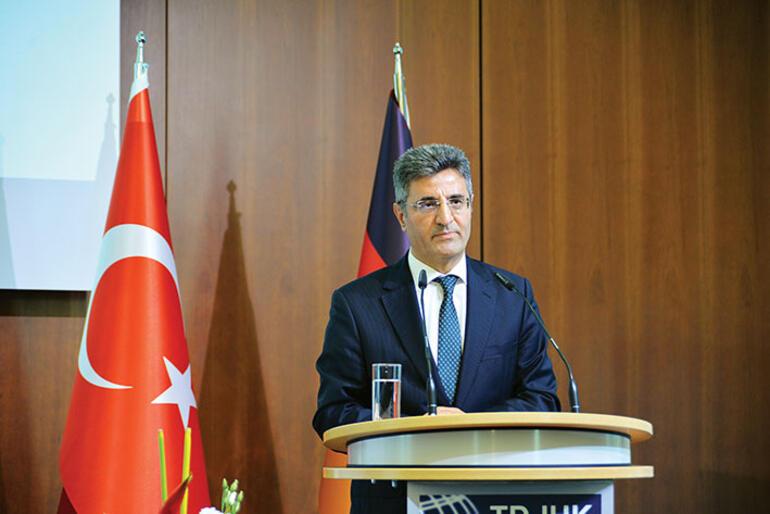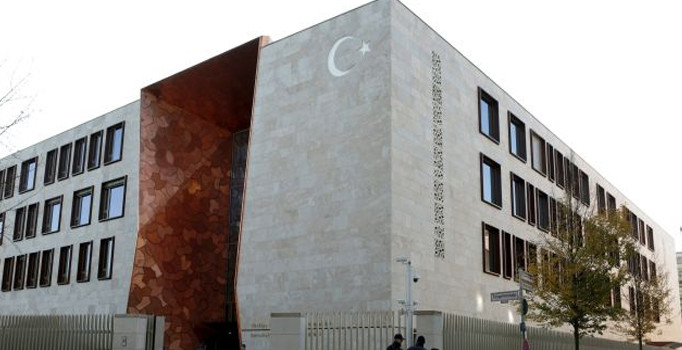Levent Kenez/Stockholm
Documents obtained by Nordic Monitor show that the Turkish Embassy in Germany profiled Turkish citizens who are opponents of Turkish President Recep Tayyip Erdoğan and sent their private information to Ankara. The Ministry of Foreign Affairs then shared the information with judicial authorities, resulting in trumped-up terrorism investigations into these people without any concrete evidence.
According to a December 11, 2018 decision by prosecutor Birol Tufan, the Ankara Chief Public Prosecutor’s Office launched a separate investigation (file no. 2018/27295 ) into 14 Turkish nationals who were on a list dispatched by Turkish diplomats.
Judicial documents expose how the Turkish Embassy in Berlin triggered criminal investigations in Turkey. (The names and addresses of the Turkish nationals have been redacted for security reasons.):
The profiling list was conveyed to the foreign ministry by Ali Kemal Aydın, the Turkish ambassador in Berlin between 2016 and 2021. Ambassador Aydın has many times criticized Germany for its attitude towards those of Erdoğan’s political opponents who fled ill-treatment and torture in Turkey and took refuge in Germany.

Nordic Monitor previously disclosed that the Turkish intelligence agency infiltrated refugee camps to spy on unsuspecting asylum seekers who were seeking protection from Turkey. According to a secret Turkish government document several Turkish citizens were identified by Turkish agents as residents of refugee camps. The document was issued by the Security General Directorate (Emniyet) and sent to the chief public prosecutor’s office in the province of Gaziantep, where the profiled citizens have birth registry records.
Critics of the Erdoğan government abroad, especially members of the Hizmet/Gülen movement, have been facing surveillance, harassment, death threats and abduction since President Erdoğan decided to scapegoat the group for his own legal troubles. They have often been denied consular services such as power of attorney and birth registry, as well as having their passports revoked. Their assets in Turkey are seized and their family members at home risk criminal charges.
Most recently educator Orhan İnandı, who was included in documents previously published by Nordic Monitor, was kidnapped in Kyrgyzstan on May 31 and illegally brought to Turkey by Turkish intelligence agency MIT. İnandı, who had lived in Kyrgyzstan for nearly 30 years, was arrested July 12 on charges of membership in a terrorist organization.
Turkish embassies are spying on Turkish citizens who have registered for consular services. Nordic Monitor published a Turkish foreign ministry communiqué, stamped secret, showing that the Turkish Embassy in Kosovo profiled 78 people who had listed their professions as teachers when they made applications with the consulate for various citizen services. Similar work has apparently been done in other Turkish diplomatic missions at the request of the Security General Directorate, the main law enforcement agency in Turkey.
As previously disclosed by Nordic Monitor, the foreign ministry sent lists of profiled Turkish nationals in two CDs to the Ankara Chief Public Prosecutor’s Office, the national police and Turkey’s intelligence agency MIT on February 19, 2018, via an official document for further administrative or legal action, the punishment of their relatives back in Turkey and the seizure of their assets. Public prosecutor Adem Akıncı, who received the foreign ministry document on February 23, 2018, forwarded the classified CDs including information on 4,386 Erdoğan critics to the Organized Crimes Unit of the Ankara Police Department for further action. The police conveyed the results of its investigations to the public prosecutor.
Secret Turkish Foreign Ministry document confirming that Turkish embassies and consulates run a spy network around the world, profiling critics abroad:
Foreign Minister Mevlüt Çavuşoğlu confirmed systematic spying on Turkish government critics on foreign soil by Turkish diplomatic missions in February 2020. Çavuşoğlu said Turkish diplomats assigned to embassies and consulates have officially been instructed by the government to conduct such activities abroad. “If you look at the definition of a diplomat, it is clear. … Intelligence gathering is the duty of diplomats,” Çavuşoğlu told Turkish journalists on February 16, 2020 following the Munich Security Conference, adding, “Intelligence gathering and information collection are a fact.”












